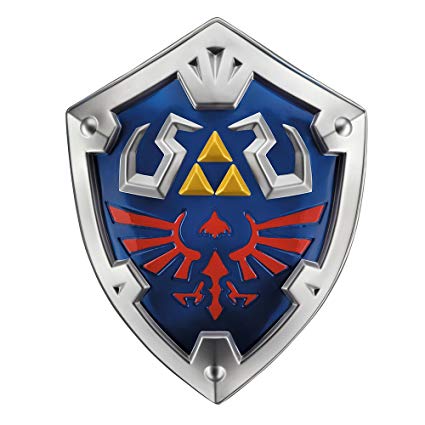
noun
- a broad piece of armor, varying widely in form and size, carried apart from the body, usually on the left arm, as a defense against swords, lances, arrows, etc.
- a similar device, often of lightweight plastic, used by riot police to protect themselves from rocks and other thrown objects.
- something shaped like a shield, variously round, octagonal, triangular, or somewhat heart-shaped.
- a person or thing that protects.
- a police officer’s, detective’s, or sheriff’s badge.
- Ordnance. a steel screen attached to a gun to protect its crew, mechanism, etc.
- Mining. a movable framework for protecting a miner from cave-ins, etc.
- Electricity. a covering, usually made of metal, placed around an electric device or circuit in order to reduce the effects of external electric and magnetic fields.
- Zoology. a protective plate or the like on the body of an animal, as a scute, enlarged scale, etc.
- dress shield.
- Heraldry. an escutcheon, especially one broad at the top and pointed at the bottom, for displaying armorial bearings.
- (initial capital letter) Astronomy. the constellation Scutum.
- Also called continental shield. Geology. a vast area of ancient crustal rocks which, together with a platform, constitutes a craton.
- a protective barrier against nuclear radiation, especially a lead or concrete structure around a reactor.
verb (used with object)
- to protect (someone or something) with or as if with a shield.
- to serve as a protection for.
- to hide or conceal; protect by hiding.
- Obsolete. to avert; forbid.
verb (used without object)
- to act or serve as a shield.
noun
- any protection used to intercept blows, missiles, etc, such as a tough piece of armour carried on the arm
- any similar protective device
- Also called: scutcheon, escutcheon heraldry a pointed stylized shield used for displaying armorial bearings
- anything that resembles a shield in shape, such as a prize in a sports competition
- the protective outer covering of an animal, such as the shell of a turtle
- physics a structure of concrete, lead, etc, placed around a nuclear reactor or other source of radiation in order to prevent the escape of radiation
- a broad stable plateau of ancient Precambrian rocks forming the rigid nucleus of a particular continentSee Baltic Shield, Canadian Shield
- short for dress shield
- civil engineering a hollow steel cylinder that protects men driving a circular tunnel through loose, soft, or water-bearing ground
- the shield informal
- Australian short for the Sheffield Shield
- NZ short for the Ranfurly Shield
verb
- (tr) to protect, hide, or conceal (something) from danger or harm
n.Old English scield, scild “shield; protector, defense,” literally “board,” from Proto-Germanic *skelduz (cf. Old Norse skjöldr, Old Saxon skild, Middle Dutch scilt, Dutch schild, German Schild, Gothic skildus), from *skel- “divide, split, separate,” from PIE root *(s)kel- (1) “to cut” (see scale (n.1)). Perhaps the notion is of a flat piece of wood made by splitting a log. Shield volcano (1911) translates German Schildvulkan (1910). Plate tectonics sense is from 1906, translating Suess (1888). v.Old English gescildan, from the root of shield (n.). Related: Shielded; shielding. Cf. German scilden. n.
- A protective device or structure, such as a lead sheet to protect an individual from x-rays.
- A wall or housing of an absorbing material, such as concrete or lead, built around a nuclear reactor to prevent the escape of radiation.
- A structure or arrangement of metal plates or mesh designed to protect a piece of electronic equipment from electrostatic or magnetic interference.
- A large geographic area where rocks of a continent’s craton (the ancient, relatively undisturbed portion of a continental plate) are visible at the surface. A shield is often surrounded by platforms covered with sediment.
 Liberal Dictionary English Dictionary
Liberal Dictionary English Dictionary